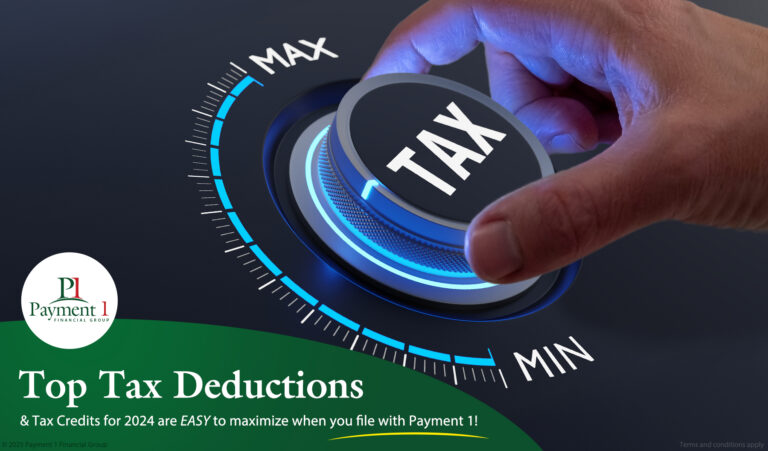How to Use Personal Loans to Your Advantage

Most people are terrified of debt and try to avoid loans, except for a home or car loan. Personal loans are something people usually shy away from mainly because there is no particular use for them. Here’s the thing: not all debt is bad. For example, mortgages allow you to purchase a home without paying the whole amount up front. Credit cards help you with your everyday expenses. Personal loans can be an excellent tool to reach a financial goal or two. As long as you use the loan responsibly, which means you have a specific use for the loan proceeds and a solid plan on paying it back, a personal loan can be advantageous.
But what exactly are personal loans?
Personal loans are unsecured loans, usually with a fixed interest rate. When we say unsecured, it merely means that you do not need to put up collateral to apply and get approved. However, this also means that the lender takes a more significant risk and will most likely charge a higher interest rate than when you take out a home or car loan. The interest rate will depend on factors such as your credit score, debt-to-income ratio, loan amount, repayment term, employment status, and the purpose of the loan.
Personal loans can also be secured. For example, you can use a bank account, a car, or other property as collateral. Therefore, it might be easier to qualify for a secured personal loan. However, you might lose your collateral if you don’t keep up with the monthly payments.
What can personal loans be used for?
Personal loans provide immediate financial relief. However, for a personal loan to be a practical option, it is best to have a specific purpose for taking out the loan. Here are some of the reasons for taking out personal loans.
Medical emergencies
Considering the cost of healthcare, a personal loan becomes a viable option for us in times of medical emergencies. Health insurance may help, but most of the time, it does not cover all expenses. Therefore, you should not think twice about taking out a personal loan for a medical emergency, especially if it is your only option.
Education
Education loans can sometimes be harder to qualify for, urging you to take out personal loans instead. Paying for your own education or someone else’s is an excellent way to spend personal loan funds.
Vacation
Our lives can get chaotic sometimes, and we need to take a break. Taking out a personal loan to fund a vacation can be a practical solution to prevent impending burnout.
Wedding
Some couples would take personal loans to give themselves a little elbow room regarding their budget. It can be an excellent way to ease their minds off financial worries and focus on their big day.
Home renovation
You can use a personal loan to fund minor renovations or upgrades to your home. For example, perhaps it’s time to spruce up your kitchen or repaint your house – a personal loan can be your best bet for such purchases.
Moving expenses
These expenses can pile up if you relocate from one place to another. Taking out a small personal loan can help cover these expenses, so you don’t have to worry about cutting down on other costs allocated in your budget.
Building your credit score
One significant advantage of taking out personal loans is they can help build up your credit score. Your credit score will tell financial companies how good of a payer you are. Banks and loan companies base the approval of your loans on background checks and credit rating–some companies even look at it before deciding to hire you. If you have no credit history or a bad rating, the chance of your loan application being approved is zero. So taking out a personal loan could help you start building up your credit score and, in doing so, open you up for more opportunities financially.
Paying off high-interest debts
You can also use a personal loan to help build your savings. How? You can take out a personal loan to consolidate everything if you have credit card debts and/or high-interest debts. Because personal loans have lower interest than credit cards, you can cut the interest on your different, high-interest debts by as much as 50%. Consolidating your debts means that instead of owing several banks money, you only owe one bank, with a lower interest rate to boot. The money you save by having your interest rates cut can be used to start a savings or emergency fund, two accounts you need to have for rainy days.
Credit card debt consolidation
You can save money if you take a personal loan to repay one or multiple credit card debts. This is because the average interest rate for credit cards is 22.12%, while the average personal loan interest rate is 11.08%. This difference will allow you to pay off your credit card balances faster and save money. It is also easier to track your payments if you repay a single debt rather than multiple credit card accounts.
Augmenting your salary
They could also save the day when the going gets tough, and you need a specific amount of money when your funds are running low. You can take out a personal loan to help tide you over. Just make sure that you pay your debt in full and on time. The shorter the loan period, the higher you pay per month but, the lower the interest rate. So consider what amount you can afford to pay back monthly so that you won’t miss any payments and will not bring your credit score down.
Small business financing
If you are just starting out – you are still in the ideation phase of your small business – it may be challenging to qualify for a business loan. In this case, a personal loan may help. Once the personal loan proceeds have gotten you started on the small business, you must devise a plan to repay the loan. This way, you don’t end up paying more than you earn from the business. Starting a small business using loan proceeds is a great way to make your loan work to your advantage.
When is a personal loan a bad idea?
Personal loans can be a saving grace in tough times. However, there are instances when it’s best to avoid personal loans altogether. Here are some of them.
- – You can’t make monthly payments. You risk tarnishing your credit score and not having this option again when you need funds. Skip a personal loan if you can’t afford the monthly payments.
- – There’s no need for it. If you don’t have a specific purpose for the personal loan – say you just want extra money to lie around in case you need it – then it may not be a good idea.
- – You have better options other than a personal loan. There are alternatives to personal loans. If you haven’t considered them, you should look at them before sending that personal loan application.
What are the alternatives to a personal loan?
Here are a few of them.
- – Family or friends. It might be better to have family members or friends willing to let you borrow some money. Draft a loan agreement and a payment plan to keep yourself accountable.
- – A personal line of credit. This lets you borrow money on a rolling basis and can offer higher credit limits than credit cards. This works best if you need a low-cost cash advance or a higher credit limit.
- – Home equity loan. If you’ve paid off a huge chunk of your mortgage, you may qualify for a home equity loan. It allows you to take a loan against the equity in your home.
- – 401(k) loan. If you have a stable job and are sure that you can pay the money back within five years, then taking a loan against your retirement account can also be a sound idea.
Final Thoughts
The flexibility of a personal loan is positive as long as you know your financial capabilities, i.e., what you can pay realistically per month. It is also best to take out a personal loan only if you have a specific purpose, preferably in ways that you can also earn or benefit from it, such as taking courses to further your education or funding a small business. If you have better alternatives, consider them before applying for a personal loan.
Payment1’s expert lending team is here to help you sort through your options. Contact us today to learn more about our client-friendly payment plans.
Photo by Karolina Grabowska




